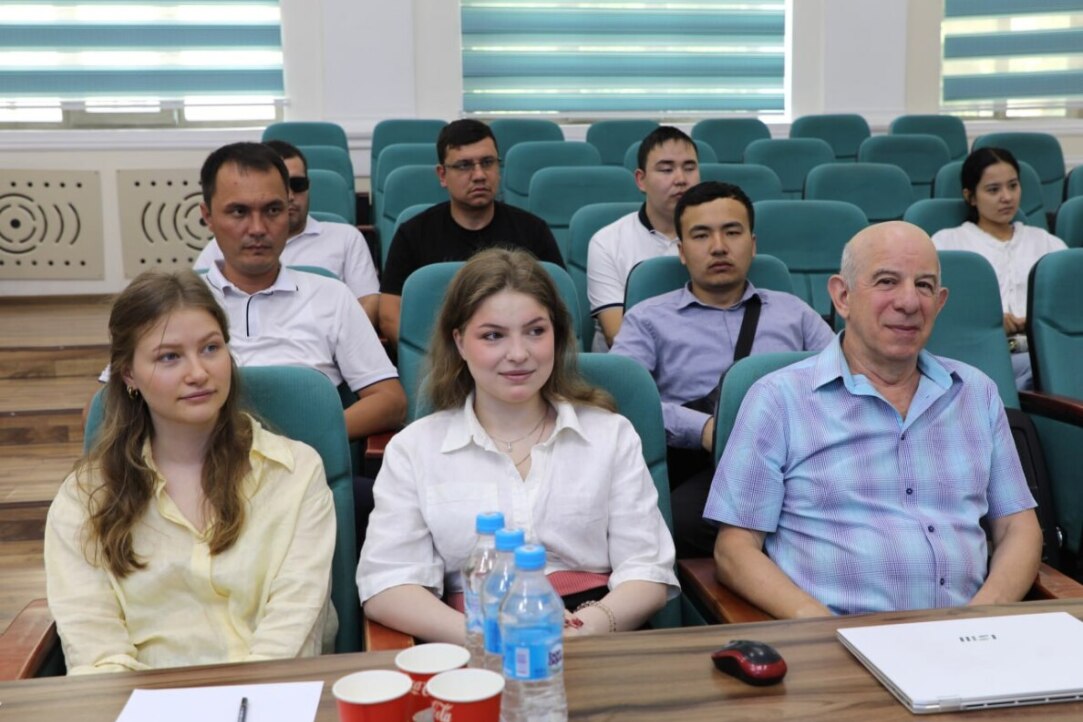
'It Is Essential to Rely on Facts and to Be Consistent and Honest'
Ksenia Rozhkova studies the labour market, learns foreign languages to gain a deeper understanding of the world, and has a passion for theatre. In this interview with the HSE Young Scientists project, she discusses non-cognitive characteristics, the role theatre plays in her life, and common myths about pursuing a master's degree.

HSE Scientists Test New Method to Investigate Mechanisms of New Word Acquisition
Researchers at the HSE Centre for Language and Brain were among the first to use transcranial alternating current stimulation to investigate whether it can influence the acquisition of new words. Although the authors of the experiment have not yet found a link between brain stimulation and word acquisition, they believe that adjusting the stimulation parameters may yield different results in the future. The study has been published in Language, Cognition and Neuroscience.

Twenty vs Ten: HSE Researcher Examines Origins of Numeral System in Lezgic Languages
It is commonly believed that the Lezgic languages spoken in Dagestan and Azerbaijan originally used a vigesimal numeral system, with the decimal system emerging later. However, a recent analysis of numerals in various dialects, conducted by linguist Maksim Melenchenko from HSE University, suggests that the opposite may be true: the decimal system was used originally, with the vigesimal system developing later. The study has been published in Folia Linguistica.

HSE University Becomes Absolute Leader in AI Alliance Ranking of Universities
TheAI Alliance Russia has announced a new ranking of Russian universities based on the quality of education in the field of AI. A total of 203 universities from 68 Russian regions participated in the ranking. HSE University was the first to join the highest A++ group.

'Today, Human Existence Without Mathematics Is Difficult; Tomorrow, It Will Be Simply Impossible'
Mathematicians around the world share a common language and continue to collaborate despite the challenges of recent years. The hub of mathematical networking has been shifting to China, where scientists from various countries meet at conferences and other academic events. Partnerships with leading Chinese universities offer promising opportunities to strengthen existing ties and forge new ones. In this interview with the HSE News Service, Valery Gritsenko, Head of the HSE International Laboratory for Mirror Symmetry and Automorphic Forms, discusses this and other topics, including what AI is and why the state should engage with mathematicians.

Scientists Rank Russian Regions by Climate Risk Levels
Researchers from HSE University and the Russian Academy of Sciences have assessed the levels of climate risks across Russian regions. Using five key climate risks—heatwaves, water stress, wildfires, extreme precipitation, and permafrost degradation—the scientists ranked the country’s regions according to their need for adaptation to climate change. Krasnoyarsk Krai, Irkutsk Region, and Sverdlovsk Region rank among the highest for four of the five climate risks considered. The study has been published in Science of the Total Environment.

HSE University and MTS Join Forces to Combat Deepfakes and Train AI to Create Bespoke Video Content
HSE University and MTS Web Services (MWS) have announced the launch of a series of joint research initiatives in the field of artificial intelligence technologies. These efforts aim to develop innovative solutions in cybersecurity, multimodal content generation, and big data analysis. The project’s leading institution is the HSE Tikhonov Moscow Institute of Electronics and Mathematics (HSE MIEM), under the overall coordination of the HSE AI Research Centre.

'Samarkand—St Petersburg': HSE University–St Petersburg and Samarkand State University to Design Digital Future of Cultural Heritage
Samarkand State University named after Sharof Rashidov hosted the international research and educational seminar 'Branding Cultural Heritage: Digital Tools and Design Practices.' The event gathered researchers and students from Russia and Uzbekistan—participants of a large-scale project of the mirror laboratory 'Integrated Platform Solutions for the Preservation and Promotion of Cultural Heritage (Cases of Samarkand and St Petersburg)'.

‘Here, Everyone Can Be Heard and Receive Feedback’
The Ronald F. Inglehart Laboratory for Comparative Social Research (LCSR) has been holding academic seminars for 15 years, bringing together scholars from various countries and offering early-career researchers a platform to present their work. Anna Almakaeva, Head of the Laboratory, spoke to the HSE News Service about how exchanging ideas contributes to academic work, what topics are discussed at the seminars, and the laboratory’s plans for the upcoming academic season.

'Trust Is a Crucial Factor in the Development of a Digital Economy'
Eduard Tunkevichus enjoys working with data and learning new things, particularly innovative research and analysis methods. In this interview with the HSE Young Scientists project, he discusses the insights he gained while writing his dissertation, the difference between applied and academic research in marketing, and how AI helped him salvage his mandarin houseplant.


Applications are submitted until August 17, 2025